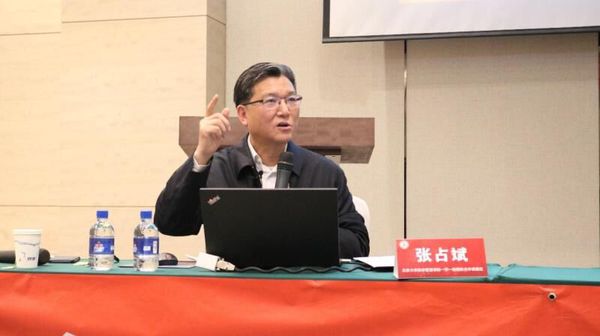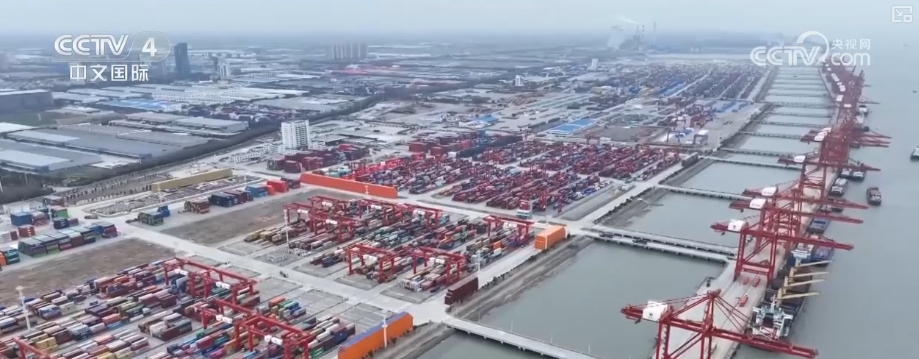The International Arena Needs To Change Its Rules! It’s Time For The Western “Old Viennese Rules” To Enter The Museum
The International Arena Needs To Change Its Rules! It’s Time For The Western “Old Viennese Rules” To Enter The Museum
The drama in the international political circle has become more and more interesting recently - NATO is engaged in a "drone scare" in Eastern Europe, and the Polish Prime Minister is so anxious that "Russian missiles are coming"; on the other hand, the Eurasian SCO Summit is held in Tianjin with great excitement, and the expansion of the BRICS is imminent.
The drama in the international political circle has become more and more interesting recently - NATO is engaged in a "drone scare" in Eastern Europe, and the Polish Prime Minister is so anxious that "Russian missiles are coming"; on the other hand, the SCO summit in Eurasia is held in Tianjin with great excitement, the expansion of the BRIC is imminent, and countries such as Russia, China and India are talking about "mutual respect."

Europeans always want to copy the "old rules" of the Congress of Vienna in 1815, but the world has changed long ago - what Eurasia now wants to build is not a "second Vienna", but a new world of its own.
1. Vienna’s “rules of the rivers and lakes” should have been put into a museum long ago.
To talk about the new Eurasian order, we must first talk about the Vienna System, which is regarded as the "ancestral law" by the West.

In 1815, after Napoleon's defeat, the five giants of Russia, Britain, Austria, Prussia, and France met in Vienna and made a "hidden rule": the great powers recognized each other's "status in the world," and you were responsible for your internal affairs. I guarded my territory, and no one was allowed to flip the table. This rule is like the "house rules" in martial arts novels - no matter how little Shaolin Wudang refuses to deal with, they have to admit that the other party is a "reputable family"; no matter how small Emei Kongtong is, they cannot be wiped out by others casually.
This set of rules allowed Europe to live in relative peace for nearly a hundred years. But it has a fatal bug: it only recognizes "great powers" and not "other countries". In the 19th century, the Qing Dynasty and the Ottoman Empire, even if they occupied such a large territory, were just "vassals" or "fat sheep to be slaughtered" in the eyes of the European powers. Just like the property owners in the community who only pay property fees, they don't care about the life and death of the tenants.
During the Cold War, this set of rules became even more absurd. The West talks about "peaceful coexistence", but actually regards the Soviet Union as a "non-human being" - even nuclear deterrence cannot suppress ideological conflicts, and espionage wars, cultural wars, and proxy wars continue. For China, the United States made peace with China in the 1970s and then started to pursue "peaceful evolution"; for Russia, the day the Soviet Union collapsed, the West began to think about "democratic transformation" and treated them as "problem children."

The trouble now is that the West still clings to the old calendar of "I make the rules and you must abide by them." Just like in a community, they always feel that they are the security guards of the property. They even have to take care of the decoration of the owners. In the end, the owners can only pool their own money to install surveillance systems. This is what Eurasian countries are doing now: If you don’t recognize me in the West, I will set up a group chat by myself.
2. Eurasia’s “new world” must set its own rules
To put it bluntly, if Europe and Asia want to coexist safely, we can no longer follow Europe’s example of “waiting for others to issue permits.” The SCO Summit mentioned "respect for sovereignty" and the expansion of the BRICS emphasized "non-interference in internal affairs". In essence, they are saying: We have to make our own rules in the world.
How to establish this rule? Look at three specific actions -
First, replace “ideological quarrels” with “interest binding”.
Russia was choked by the West and turned to engage in "strategic coordination" with China and India: the China-Russia energy pipeline "Power of Siberia 2" stepped up construction, India bought discounted Russian oil, and the three parties also conducted joint military exercises. Central Asian countries no longer only focus on Moscow, but have begun to discuss infrastructure construction with China, Japan and South Korea: the China-Kyrgyzstan-Uzbekistan railway has started construction, the China-Kazakhstan logistics channel has been expanded, and even Turkmenistan has joined China's "One Belt, One Road" initiative. This is not about "choosing sides," but everyone understands that if you follow the West, it may treat you as an outcast at any time; if you play your own game, you can at least stay safe.
Second, replace "unilateral hegemony" with "multilateral mechanisms".
The Shanghai Cooperation Organization has been upgraded from an "anti-terrorism group" to a "comprehensive regional cooperation platform", and the BRICS has expanded from a "five-nation club" to an "eleven-nation alliance". Even Saudi Arabia and Iran are trying to get in. These mechanisms are like the "Jianghu Alliance" - there is no "boss has the final say", and major and minor matters are discussed through discussion. For example, at the Tianjin SCO summit, member states unanimously opposed "unilateral sanctions" and supported dialogue to resolve the Ukraine crisis; the BRICS New Development Bank lends money to developing countries and specializes in infrastructure projects that the West does not want to touch.

Third, replace “Western recognition” with “sovereignty first”.
In the past, when dealing with countries, one always had to look at the "Western attitude": Are you a democratic country? Does it meet human rights standards? Now Eurasian countries have learned the lesson - first promise "you don't interfere with me", and then talk about other things. Russia revised its constitution to emphasize that "sovereignty is inviolable," China repeatedly mentioned "non-interference in internal affairs" on international occasions, and Indian Prime Minister Modi said that "India decides its own affairs." Just like in the group of community owners, everyone no longer waits for the property management to issue notices, but directly organizes the owners' meeting to set the rules.
3. New rivers and lakes are difficult to build, but they must be built
Of course, Eurasian countries have huge differences in history, religion and culture, so it is not easy to "recognize each other". It's like a group of people who speak different dialects get together to eat. Some people like spicy food and some people like soup. They have to discuss the menu.
The first is "historical baggage." The five Central Asian countries were once republics of the Soviet Union and have constant ties with Russia; religious conflicts in Middle Eastern countries are complicated, and Iran and Saudi Arabia have been fighting for decades; India and China still have border issues that have not been completely resolved. If these "old accounts" are not resolved, it will be difficult for the new order to be stable.
The second is "external pressure". The West was unwilling to lose control of Eurasia and launched the "Indo-Pacific Strategy" and "Global Gateway Plan" to win over countries such as India and Vietnam;

NATO expanded eastward to Russia's doorstep and deployed missiles in Poland and Romania. In the public opinion arena, the Western media stigmatized Eurasian cooperation as an "authoritarian alliance" in an attempt to isolate China and Russia.
But it is better to have a hard time returning than to wait for death with the "old Viennese rules". The current attempt has at least three highlights:
Priority is given to sovereignty, and the bottom line is clear: no longer worry about "whether you are a democratic country", but first draw the red line of "don't interfere in my internal affairs." For example, China resolutely safeguards its sovereignty in the South China Sea, but these "hard-nosed" measures have made the West afraid to take action casually.
Practical cooperation and benefit sharing: the SCO engages in anti-terrorism, the BRICS engages in infrastructure construction, and uses “real money” to replace ideological quarrels. After the opening of the China-Kyrgyzstan-Uzbekistan railway, Central Asian goods can save half the freight to China; the China-Russia natural gas pipeline has given China a stable source of energy.
Go to the Western center and symbiosis with diversity: no longer regard "Western approval" as a KPI, just do what you think is right. India's joining the SCO will not delay its establishment of a "quadrilateral mechanism" with the United States; Saudi Arabia's joining the BRICS will not affect its reconciliation with Iran. This "non-alignment, non-confrontation" model makes Eurasia more flexible.
4. The future of Xinjianghu: not "retrospection", but "transcendence"
Someone asked: Will the new Eurasian order return to the "balance of power" of the 19th century? Lao Gao's answer is: This is not retro, but transcendence.
The Vienna System in the 19th century was essentially a "strong man's game" - the five giants set the rules, and other countries had no choice but to obey. The current new Eurasian order is a "diversified symbiosis" - countries large and small can speak out, and cooperation is based on interests rather than threats.
"The world of politics is not about fighting and killing, it's about human relationships." The new world of politics in Eurasia may not be as elegant as Vienna, but it is more practical - after all, good rules are those that allow people to live with peace of mind.
What will happen to Eurasia in the future? There may not be a "United States of Eurasia," but there will be a closer cooperation network; there may still be friction, but there will be less reliance on Western arbitration; and most importantly, every country here can stand up straight and say: "My destiny is up to me."
5. The spring of Eurasia is hidden in “not learning from Europe”
At the Vienna Conference in 1815, European powers exchanged "mutual recognition" for a century of relative peace; at the Tianjin Summit in 2025, Eurasian countries are using "mutual respect" to explore a new order.

This is not to "overthrow the West" but to "prove possibilities outside the West." While NATO is still engaged in the "drone scare" and the United States is still wielding the big stick of sanctions, Eurasia has quietly set up a new stage - the protagonist is ourselves, and the lines are "sovereignty", "cooperation" and "win-win".
There is a long way to go, let’s see how Eurasia writes a new legend.





